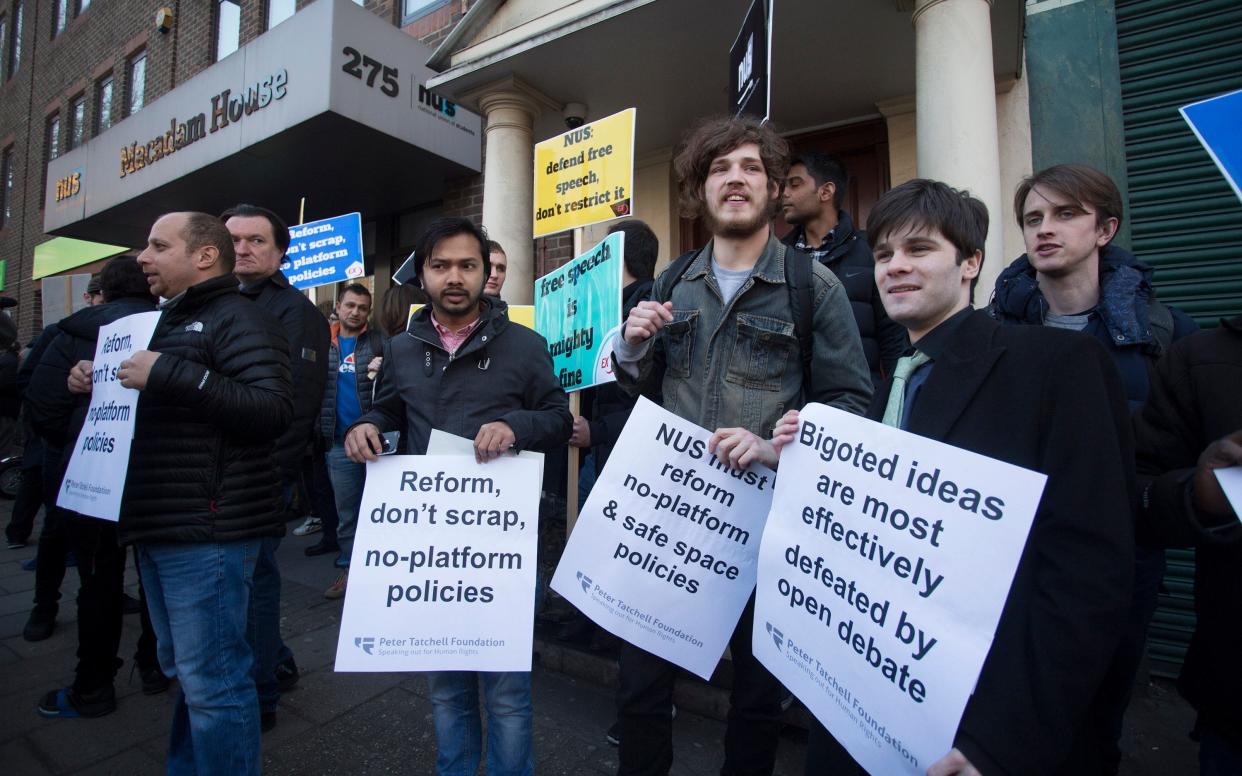If the government is serious about cracking down on "safe spaces", it should begin by looking at the example it sets

The fightback against campus censorship seems to be gaining traction. Students at City University have successfully overturned a ban on tabloids, while Queen Mary’s Free Speech Society distributed copies of The Sun in defiance of their union's ban. The government is now keen to also get in on the action.
Echoing Theresa May’s criticism of intolerant "safe spaces" last year, universities minister Jo Johnson has proposed that universities should be actively required to promote free speech. In a letter to Nicola Dandridge, the chief executive of Universities UK, Johnson maintained that it was a "legal duty" of universities to ensure that freedom of speech is secured on university campuses.
For those of us who maintain that campuses should be unsafe spaces where any and every idea should be aired and confronted in open and tolerant debate, Johnson’s statement couldn’t have come at a more fitting time.

In the past month alone, Cardiff Metropolitan University has been criticised for banning words such as "right-hand man", "waitress" and "forefather" because apparently gendered language isn’t inclusive. Staff who fail to comply with the university’s ruling could face disciplinary action and students will be dealt with according to their "bullying and harassment policy". Cardiff’s inclusive attitude evidently only applies to those who spout its exclusive linguistic constructs.
More recently, the University of Lincoln revealed that campus censorship is best served with a dash of irony after its union suspended a Conservative society’s social media account because the society had dared to tweet about Spiked’s Free Speech University Rankings, which had highlighted the union’s censorious nature.
Whilst Johnson’s comments are certainly timely, Parliament’s sudden passion for free speech should leave free speech activists feeling perplexed. After all, many of the tools used by today’s campus censors, from safe spaces to no-platforming, are also promoted by the government.
The Home Office’s Prevent Strategy, for example, is predicated on the notion that people are too thick and vulnerable to cope with ideas they may find disquieting. As a consequence, the government has banned people with unorthodox views from entering the country, and by doing so, has turned the UK into its very own safe space. And with each terrorist outrage, calls to extend the scope and depth of this program will only grow stronger – as we have seen after the Westminster attack.
Hypocrisy aside, Johnson's proposal for universities to include a principle about freedom of speech in their governance documents won't quell the tide of campus censorship.
Already within their vacuous union guidelines, a significant proportion of universities claim to uphold the values of freedom of speech and tolerance. More often that not, however, the phrase is followed by a whopping great "BUT" and a justification about why free speech should be restricted in certain cases. Unfortunately for Johnson, paying lip service to free speech by jotting down a few wordy principles isn’t the same as ensuring its presence. More importantly, disallowing supporters of safe spaces from expressing their views assumes that the best medicine for intolerance is intolerance itself.
Campus censorship is rooted within a wider support for identity politics that emphasises the vulnerability of students. From trigger warnings to the elimination of gendered language, censorious students are motivated by a genuine concern that their peers are adolescent creatures who need protecting. Underlying every censorious policy is the paternalistic assumption that students are children as opposed to rational adults.
Simply trying to eliminate the manifestation of campus censorship, as Johnson hopes to do, fails to appreciate that it is spurred on by a philosophy more insidious than any university union policy. If the government is serious about addressing it, perhaps they should consider setting an example and scrapping its own censorious restriction of extremist views.
The battle against the campus censors won’t be won by taking shortcuts. Censoring the censors only makes our battle harder.
Jacob Furedi is a writer and student who tweets @jacobfuredi
Free Speech University Rankings Table 2017

 Yahoo News
Yahoo News 
